Photo of the Day: 20190108_MDRS202_StressTests
Journalist Report – January 9th
MDRS Crew 202, Journalist Report
Alexandra Dukes, Crew Journalist
Sol 11 – 01/09/2018
Name the space movie (or show) given the following quote. Answer at the end of the Report:
I’m just a simple man trying to make my way in the universe.
—
Aromas of basil, tomatoes, and pesto are filling the habitat tonight as our Italian born Commander crafts homemade pizza for a crew movie night. With 3 days to go before our departure, we are making the most of the dehydrated ingredients that are left in the pantry. Freshly made pizza dough and a choice of tomato or pesto base with previously dehydrated mozzarella cheese, sausage, chicken, and fresh basil from the Green House come together to make a special treat that future Martians would be able to craft and enjoy. A well-deserved meal after the long duration Extra-Vehicular Activity (EVA) our Commander, Geologist, Engineer, and Executive Officer made to Lith Canyon today.
Lith Canyon is an incredible expanse of deep red canyons and high piled beige rock formations. Our Executive Officer was especially excited after returning from this EVA! He found an area with a high amount of radioactivity. A spot he has been looking for since his first EVA on Sol 3! On each EVA, our Executive Officer carries a black briefcase from which he pulls out a funny looking tan box with 80’s styled stickers and a coiled wire hooked to what appears to be a karaoke microphone. This device measures the radioactivity of an area, an important measurement for future crews on Mars. Astronauts are exposed to high levels of radiation in space travel to the point where NASA sets a threshold for the amount of radiation an astronaut can absorb in their career before having to retire.
While on Mars, the Martian atmosphere is thin and the astronauts will be exposed to cosmic radiation while on the surface. Cosmic radiation cannot be avoided, but we can attempt to decrease the amount of radiation the astronauts are exposed to by identifying areas on the Martian surface where there is a higher amount of radiation. The work performed by our Executive Officer investigates the feasibility of taking radioactive measurements during an EVA, while wearing a big bulky suit, trying to press tiny buttons and write down numbers in large, padded gloves.
Microgreens, geology, and radiation are all important scientific aspects of learning how to survive on the Red Planet, but what about the psychological aspects? During this incredibly risky endeavor, how can we ensure the crew is psychologically prepared? A second research project being pursued by our Executive Officer is investigating if stress affects the amount of risk astronauts are willing to accept when making decisions during an EVA. On average, people who make decisions under stress tend to make riskier decisions. EVAs will be a high-risk activity while on the Martian surface. Every movement will need to be practiced, calculated, and precise to ensure the safety of the crew. The increased risk of decision making by the crew due to stress could be the difference between a successful day and a tragedy.
Stress is a biological response to unknown situations. Short duration stress is what we’re most familiar with. The adrenaline rush of fight or flight. The stress our Executive Office is most interested in, though, is the long duration stress. If our brain stays in fight or flight for more than a half hour, it starts preparing the body to experience stress for an extended period of time by releasing a hormone called cortisol. Cortisol remains in your body for almost an hour after the stressful event and can be measured in our spit. Using a combination of games whose software measures our aversions to risk and a machine that measures the cortisol levels of our spit, our Executive Officer hopes to answer the question of whether stress causes the crew to make riskier decisions. These tests are given to the crew after an EVA and considered a “natural” stressor. A simulated “lab” test is also performed in the habitat, requiring the subject to stick their hand in 2 degrees Celsius water for 2.5 minutes. If you have never jumped in a river in Antarctica, your hand after 30 second begins to feel pain. The next minute is spent going from pain to numb, and after staring at the clock for the last minute, you feel much more awake and alert as the adrenaline rushes through your veins. Luckily, your hand warms up in time to play the stress games and not fumble through the buttons. Our Executive Officer’s wonderful research on radiation and stress will work to improve crew survivability in future Mars missions. Great job Executive Officer! We can’t wait to see the results of your work!
—
Movie (or Show) Answer: Star Wars: Episode II – Attack of the Clones
EVA Report – January 9th
Crew 202 EVA Report 9-Jan-2019
EVA #10
Author: Denys Bulikhov (EXO)
Purpose of EVA: Collection of geological samples and ambient radiation readings
Start time: 10:30
End time: 13:17
Narrative: Jake Qiu (HSO) was replaced with Ellen Czaplinski (GEO) due to primary geological intent of this EVA. EVA 10 took Cow Dung Rd north towards the Lith canyon until Spirit rover hit 60% of battery charge (Curiosity was at 65%). After that crew left the rovers and walked towards the canyon for approximately 0.8 miles. EVA 10 crew passed outside the dinosaur quarry and came out to the canyon from the west.
Here they collected radiation readings and geological samples. They looked for ways to get to the bottom of the Lith canyon, however, due to wet mud the descent was aborted. Right outside the quarry, EXO found the spot on the side of the larger formation where the ambient radiation level was almost 10 times higher than anywhere around MDRS area so far (12-16 uR/h on average around MDRS compared to the high 127 uR/h at this spot).
Samples were not collected however due to proximity to dinosaur quarry.
After that EVA 10 crew walked back to the rovers and came back to the Hab.
Destination: Lith canyon
Coordinates: N518800, E4256500
Participants: Cesare Guariniello (CMD), Denys Bulikhov (EXO), Kasey Hilton (ENG), Ellen Czaplinski (GEO).
Road(s) and routes per MDRS Map: Cow Dung Road.
Mode of travel: Driving and walking
Vehicles used: Spirit and Curiosity.
With best regards,
Denys Bulikhov
[end]
Astronomy Report – January 9th
Crew 202 Astronomy Report 09-Jan-2019
Crew Astronomer: Cesare Guariniello
MDRS ROBOTIC OBSERVATORY
Robotic Telescope: MDRS-WF
Objects Viewed: IC405 (“Flaming Star”) and Rosette Nebula. One exposure each of 180s in Blue, Green, and Luminance. One exposure of 240s in Red. One exposure of 300s in H-alpha
Problems Encountered: none
Greenhab Report – January 9th
Crew 202 Greenhab Report 09-Jan-2019
Greenhab Officer: Jake Qiu
Environmental Control:
Heating
Cooling w/ ambient air (1hrs)
40% Shade Cloth on
80% Shade Cloth on
Average Temperatures:
Low: 26.1°C
High: 36.7°C
Hours of Supplemental Light: 5
Daily Water Usage of Crops: 12 gallons
Water in Blue Tank (gallons): 61%, 185.5 gallons
Times of Watering for Crops:
0743
1133
1205
1421
1646
1806
Changes to crops:
* 1 pot of sugar pea pods starting to look worse
* Tomatoes seem to be better on the top rack of tier bench
* Onions looking better
* Romaine Lettuce newly planted
* 1 pot of mustard white-looking powder on topsoil
* Other plants have same progress
Narrative:
Watered plants throughout the day as needed. Planted new romaine lettuce. One pot of the mustard has a white-looking powder that has formed today (not sure if it’s a concern).
Experiment Results:
Date: SOL11 Crew 202 (SOL14 overall)
Watered all 21 trays as needed.
Watered Crew 201 experiments – the majority is growing well
Harvest: 1g – Basil
Support/Supplies Needed:
Sol Summary – January 9th
Crew 202 Sol Summary Report 09-Jan-2019
Sol: 11
Summary Title: Beyond the Dinosaurs
Author’s name: Cesare Guariniello
Mission Status: Nominal, the crew is working on the final touches of the part of their projects that has to be conducted at MDRS (some will have to study the data collected here once back on Earth)
Sol Activity Summary: this morning had a session of stretching for the back and shoulders. After breakfast, four crew members went on EVA towards Lith Canyon. Due to the safety protocol concerning the battery charge status of the rover, the crew walked the final part of the road, about 0.8 miles, to the west entrance of Lith Canyon. Walking around the special region (and “beyond the dinosaurs”), the crew studied the features of Lith Canyon from the northwestern wall. The condition of the west entrance did not allow the crew to hike down into the canyon.
After collecting radiometric data, the EVA crew walked back to the rover and drove the long road to the habitat, to join the remaining crew.
The afternoon was spent working, cleaning, making pizza dough, and resting. Tonight we are preparing a pizza and board games night.
Look Ahead Plan: Tomorrow we will host a CBS crew that will grab footage of our work here. We plan to have an EVA, as well as work on our research projects
Anomalies in work: None
Weather: Cloudy and warm
Crew Physical Status: Tired and in good health
EVA: The Commander, Executive Officer, Crew Geologist, and Crew Engineer had an EVA in the area of west Lith Canyon
Reports to be filed: Sol Summary, Operations Report, Greenhab Report, EVA report, EVA request, Astronomy Report, Journalist Report
Support Requested: None
[end]
Operations Report – January 9th
Crew 202 Operations Report 09-JAN-2019
SOL: 11
Name of person filing report: Kasey Hilton
Non-nominal systems: Hab ceiling leak; Suit #7 battery
Notes on non-nominal systems: The Hab ceiling is leaking over the couch area this morning but stopped in the afternoon, most likely due to the extra moisture from the melting snow; The battery in suit #7 was very low after the EVA and the fans were barely blowing; The suit is going to charge overnight and I will check the battery voltage again in the morning
Generator (hours run): 17hr 3min; Turned on last night (08Jan2019) at 16:33; Turned off this morning (09Jan2019) at 9:36; Turned on tonight (09Jan2019) at 15:15
Solar SOC – Turned on (08Jan2019) 80%; Turned off (09Jan2019) 100%; Turned on (09Jan2019) 82%
Diesel Reading – 70%
Propane Reading – 37%
Ethanol Free Gasoline – Not in use
Water (auxiliary tank) – Not in use
Water (static tank) – About 50%; 270 gallons
Auxiliary to Static tank transfer – No
Gallons transferred: Not applicable
Water in GreenHab – About 60%; 178 gallons
Water (loft) – At level marker 12
Static to Loft Pump used – Yes; At 18:28 to refill the tank
Water Meter: 01399232
Toilet tank emptied: No
Deimos rover used: No, still not functional
Hours: Not applicable
Beginning charge: Not applicable
Ending charge: Not applicable
Currently charging: Not applicable
Sojourner rover used: ASSIGNED TO DIRECTOR
Hours: Not applicable
Beginning charge: Not applicable
Ending charge: Not applicable
Currently charging: Not applicable
Spirit rover used: Yes
Hours: 66.8
Beginning charge: 100%
Ending charge: 26%
Currently charging: Yes
Opportunity rover used: No, brakes are still not working correctly
Hours: 45.6
Beginning charge: 100%
Ending charge: 100%
Currently charging: Yes
Curiosity rover used: Yes
Hours: 68.7
Beginning charge: 100%
Ending charge: 45%
Currently charging: Yes
Notes on rovers: Brake fluid in Opportunity was replaced but the brakes are still not functioning properly
ATV’s Used: None (Honda, 300, 350.1, 350.2, 350.3)
Reason for use: None
Oil Added? No
ATV Fuel Used: None
# Hours the ATVs were Used today: None
Notes on ATVs: Nothing to report
HabCar used and why, where? Not used
CrewCar used and why, where? Off-site
General notes and comments: Nothing to report
Summary of internet: Nothing to report
Summary of suits and radios: Battery in suit #7 was very low by the end of the EVA as mentioned above in “Non-nominal systems”; Suit will be charged overnight and battery voltage will be checked again in the morning
Summary of Hab operations: Hab ceiling leaking in one spot in the corner as mentioned above in “Non-nominal systems”
Summary of GreenHab operations: Nothing to report
Summary of ScienceDome operations: Hot plate was cleaned and will be tested tomorrow to see if the odor continues
Summary of RAMM operations: Nothing to report
Summary of any observatory issues: Nothing to report
Summary of health and safety issues: Nothing to report
Questions, concerns, and requests to Mission Support: Nothing to report
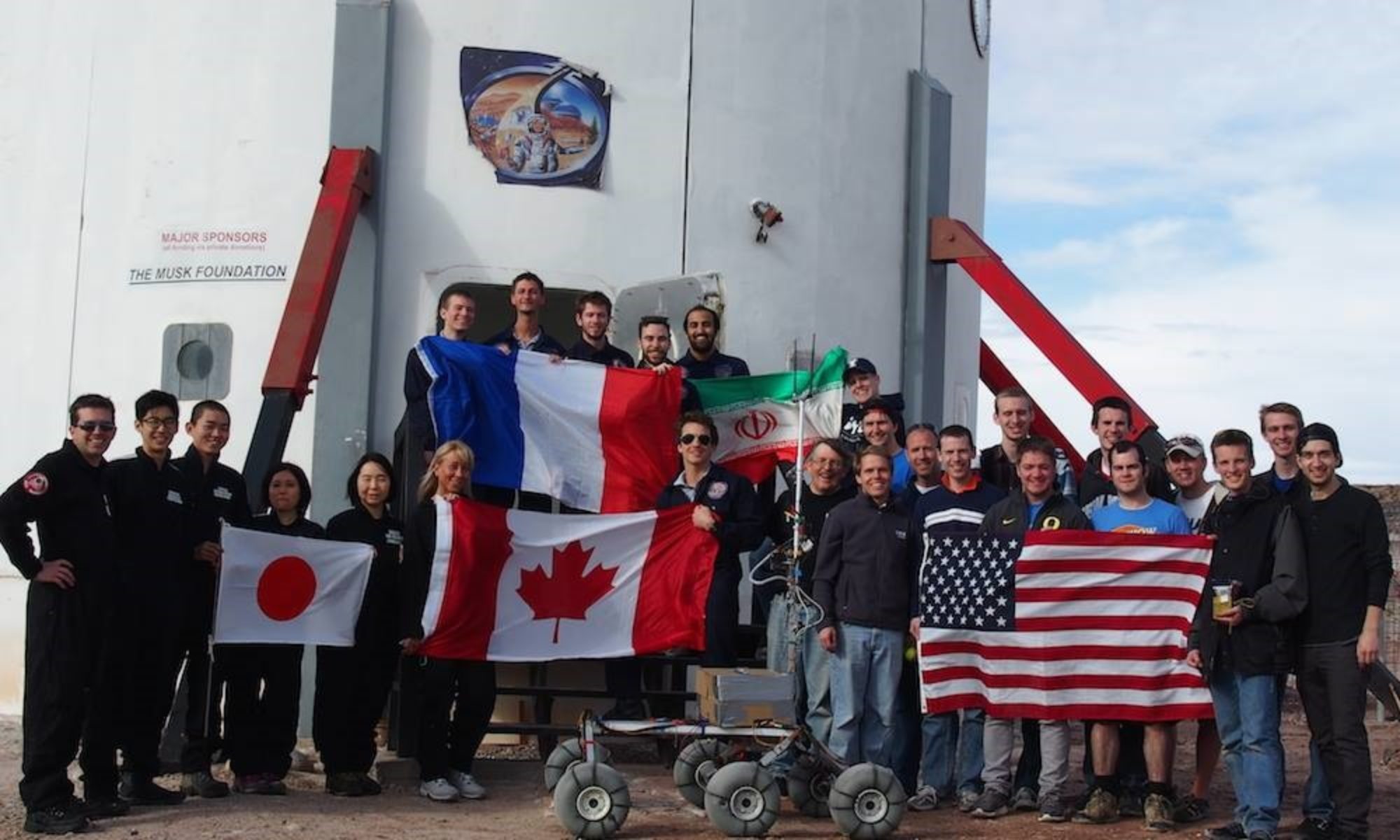
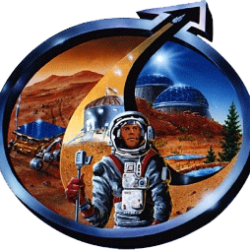
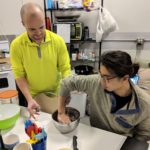
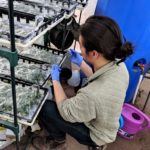
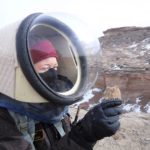
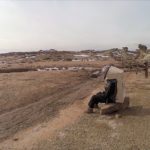
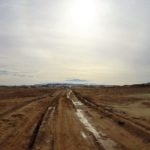
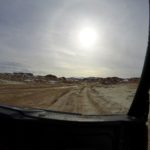
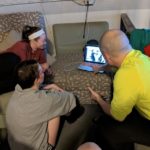
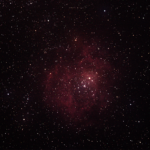
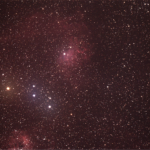
You must be logged in to post a comment.